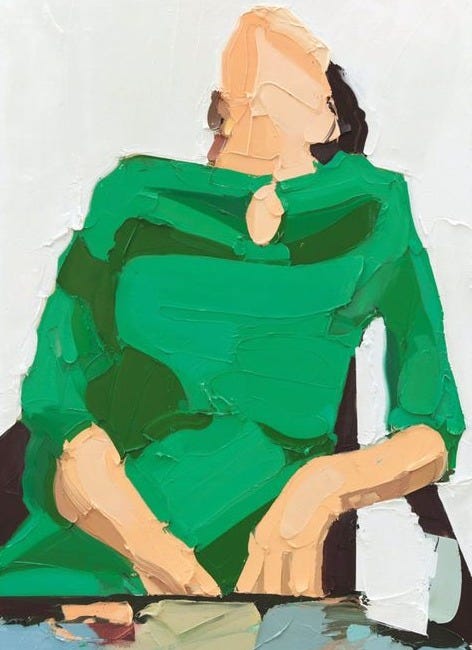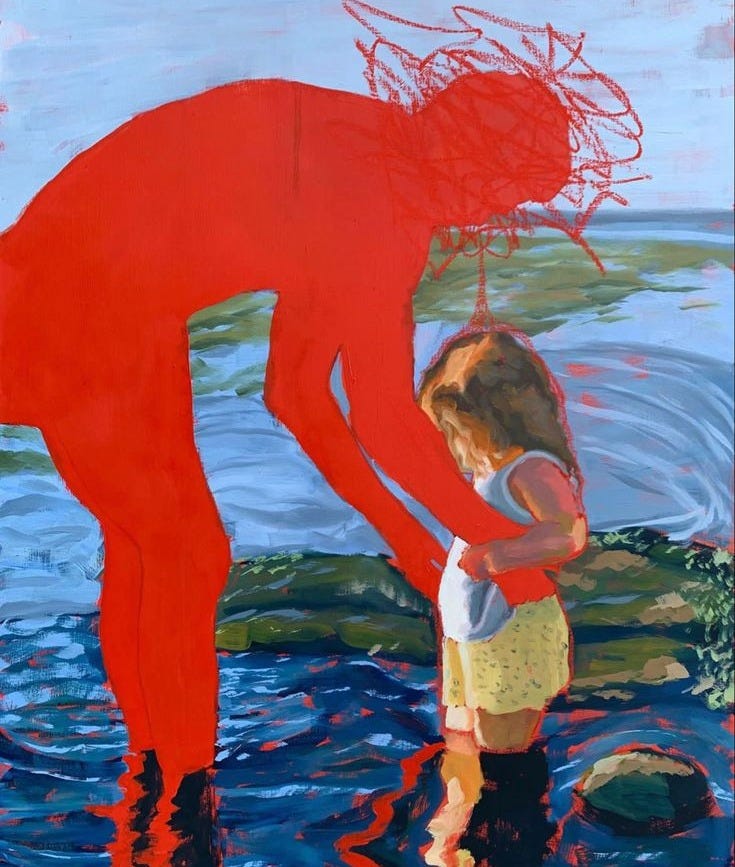Hi there,
I know it’s Christmas, and I know we’re all tired — of the decisions, the queues, the endless ‘magic-making.’ So I won’t keep you long. What I’ve written today isn’t light or cosy, but it matters. It’s for the mothers holding it all together and for the kids left behind by a silence we’re too polite to talk about.
If you’ve got a cup of something warm, settle in.
Let’s talk about who’s paying for the magic.
Here’s what I need to say.
It’s the season of kindness and joy. Stockings filled, baubles glinting, children waking to a sleigh’s worth of dreams under the tree. Except,
Let’s cut the crap about Christmas.
For millions of children, there’s no sleigh. There’s no magic.
Their mothers are keeping the lights on just - while men, their fathers, shrug off responsibility, enabled by a system that couldn’t care less.
This is the cover-up we don’t talk about. Forget Santa. Forget goodwill. The truth rots at the heart of how children are raised, and no one’s asking who pays for the dreams we sell at Christmas.
Let’s be clear:
In the UK, there are 3.18 million single-parent families, and 89% of them are headed by women. These families account for 25% of all families with dependent children, one in four. That’s 3.3 million children being raised in single-parent households.
For them, Christmas isn’t about “What’s on your list?” It’s about the food bank queue, the £20 handed down by the courts to feed two kids for a month.
This system is rotten. It lets men walk away. It lets fathers —fathers who once kissed their newborn’s head — decide their children are not worth paying for.
And yes, there are excuses.
1) “If I can’t see them, why should I pay?”
2) “How do I know she’s not pocketing the money?”
3) “She wanted me gone. She can manage alone.”
{And before you rush in with ‘not all fathers’ let me save you the trouble: of course it’s not all fathers. But if you’re more worried about defending a generalisation than the kids left behind, you might want to check your priorities}
I know this because I’ve heard it all directly from fathers themselves.
I conducted a global research study involving thousands of men, culminating in SPUNK: A Manifesto Modernising Fatherhood1, a book built entirely on their voices. I also hosted the School for Fathers podcast for 4+ years, where I interviewed hundreds of men to explore the complexities of fatherhood.
This work revealed nuances and uncomfortable truths: of course immense love, plus reasons for walking away, justifications for resisting financial support, and the systems that let fathers off the hook.
Ask single mothers what Christmas looks like.
Ask them how they hold their kids’ dreams when the fridge is empty. When the heating is off, or barely on.
Ask them what it feels like to fight for child maintenance —to spend months, years, begging for the father of their child to contribute something. Anything.
Ask them about the awards that are made. £50 a month for one child. £100 for four. Ask them how often these sums are based on accurate pay figures. Ask them how often they see a penny at all.
Ask them if they once believed the man they loved, the man they built a family with, would do the right thing. Ask them what it’s like to learn otherwise.
And here’s the part no one talks about.
There are women (good women, women who would call themselves feminists) who live with men who don’t pay for their children. These women see fathers who love their children, who provide, who play the role society expects of “good dads.”
It’s not that women don’t ask. We ask plenty. We ask about the past, about what happened, about the children left behind.
But we’ve been conditioned to believe an insidious narrative. That something must have gone so wrong in the past relationship, our dear man had no choice but to behave this way.
“What she did to deserve this” That’s the story we’ve been sold.
Except it’s not about her. It’s never about her. It’s about the children - - > innocent, blameless children < - - who still need clothes, food, heat in the winter, and yes, a Christmas gift too2.
And we distract ourselves further with myths about who abandons their children.
It’s Black men, we’re told. It’s the deadbeat dad trope that fits neatly into racist assumptions.
But the data doesn’t lie.
My, and other research makes it clear: this is a white man’s habit3. The leaving, the refusal to pay {enough, anything}, the starting over with a clean slate while children go without.
White men who abandon one family to build another. A new family thrives, and the old one is forgotten, unsupported.
And the women in these new families? They don’t think it could happen to them.
But it does.
We’re AWASH with motherhood writing - essays on being present, on thoughtful mothering, on the interior of motherhood.
And then there’s the endless chatter about choice: when to work, how to work, whether to work at all.
As if work is a lifestyle decision. As if the privilege of choice isn’t glaringly obvious.
Because for single mothers, there is no choice. There is scraping by. And holding it all together.
The shoes on children’s feet, the gas in the meter, the food in their mouths, these don’t appear magically. SOMEONE has to pay for them, and when fathers refuse to step up, the weight falls entirely on mothers.
And let’s not forget the system, stacking the deck: benefits capped after two children, leaving families to sink. For single mothers of disabled children, the costs rise even higher for necessities, not luxuries. And the help? It doesn’t exist.
Christmas isn’t stockings and baubles and dreams under trees.
It’s survival. For millions of children, it’s their mothers fighting for them every day, fighting for warmth, for food, for fathers to do what fathers should do.
So this year, let’s ask THE question no one’s asking: Who’s paying for the magic?
Gratitude to the fathers who step up4, and for every single mother carrying the weight alone.
Danusia x
p.s. Over to you: What do you make of men who leave one family to build another, ignoring the children left behind? Maybe you’ve seen it. Maybe you’ve felt it. How do we square the joy of Christmas with the silence around those kids — the ones left unsupported, unseen, and forgotten?
The Metro described this as, “a provocative, pro-father book.”
Contact with children is separate from financial support.
In SPUNK I call this the white man’s family package deal; a link between partner and paternal responsibilities. Relationship dissolution makes continuing contact with children of this package deal fragile at best, nonexistent in many instances. The woman and the children are the package deal.
For J. You know who you are.










Oh wow, I felt this deep in my bones.
My mum raised three of us as a single parent. My dad supported as well as he could financially (he was also very physically present) but my younger brother from another father was ignored completely with no financial support, he had barely any money, except he loved several beers at the pub, so his priorities were clear.
Such respect for putting this essay together, thank you 💜
Powerful 🔥
Thankfully never experienced it first hand, but my husband had the reality outlines of a single mum without financial support… well… no need to explain more as you hit the nail on the head here with so much implications it causes not just for the mothers but the children who gets cramped too 🙏🏼
This was brave my dearest 👯♀️💖